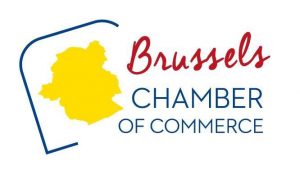Do you want to access new international markets for your company? The road is exciting, but there are difficulties to overcome. Below we share 5 essential tips to help you succeed and show you how Enterprise Europe Network can be your trusted partner in this journey.
Expanding your business abroad can be both challenging and full of growth opportunities. New markets mean new customers, increased sales potential, access to new expertise, opportunities and talents, and the opportunity to explore the markets your competitors may have missed. But where to start? We have gathered 5 practical tips to help you navigate internationalisation successfully.
1. Define your goals and identify the most promising market
Your internationalisation plan should start with a fundamental question: Why do you want to expand abroad? Whether it’s increasing your sales, cutting costs and finding new partners, having clear and measurable goals is essential to success. Once you’ve identified your goals, choose a market that meets your business goals. How to make the right choice, with so many options available? Here are some key questions to consider: What is the size of your target market? What are the political, social and economic conditions in the region? Do roads, ports and international connections meet your needs? How do tax structures work? What language skills are essential? Once you have an understanding of the market context, be specific and do not aim too wide at the level of the number of countries or region targeted, test your strategy and develop from there.
2. Identify your target market
Before you venture into a new country, you must first understand how this market works. What do customers like to buy? What are the barriers to market entry? Does your pricing strategy match the purchasing power of local customers? What are the legal and regulatory requirements for your industry? What does competition look like? Do you have a network of local partners, distributors or consultants to rely on? These are just a few of the questions you should consider in your target market.
There are two types of research that can help you get started. The quickest and easiest way to gather information about a new market is to search for existing data such as market reports and industrial sectors. Government websites and specialised companies provide valuable information that can give you insight into the new market. But if you want a more appropriate approach, you need to collect data yourself, which often takes more time and resources. You can do this by attending trade fairs and business events to communicate with people who are familiar with the market. Social media and online surveys are also convenient to interact directly with potential customers and assess their preferences and needs. One thing to remember is that market research is scalable. The study of a new country needs to be updated regularly to stay ahead of any changes in the market.
3. Know the competition.
Understanding the competition in the market is an essential factor for your success. So before you get started, take the time to build a detailed and accurate competitive analysis for your international expansion plan. A SWOT analysis is a simple but effective way to compare your business to its competitors in the new market. This allows you to assess your position through four key dimensions. First, look at your strengths: What makes your business, service or product unique? Then, consider your weaknesses, such as the challenges you might face as a growing company abroad, such as cultural differences or limited market experience. Next, explore the opportunities in the market, including its growth potential and what sets your offering apart. Finally, don’t forget the threats. For example, do local businesses benefit from benefits such as tax incentives or government subsidies that your foreign business may not have access to?
4. Develop a strong marketing and sales strategy
Marketing is crucial to win new markets. What works in your internal market may not work abroad, so it is important to take into account the cultural, linguistic, political and economic nuances of your target market and adapt your message accordingly. This could mean translating your content into different languages and using words and visuals that speak to the local audience.
When it comes to sales, you will have to decide at what level you will need to adapt to the new market. There are different approaches that you can explore. Exporting is a way to enter new markets without completely transforming your business activities. The license involves a partnership with another company to sell your brand in exchange for a license fee. Joint ventures, where you collaborate with another company to create a new product or service, carry more risks but also offer higher potential returns. Choosing the right strategy is a crucial decision in your international expansion journey.
5. Building an international team
Surrounding yourself with competent employees with international experience is a major challenge for small and medium-sized enterprises that are growing globally. However, it offers substantial benefits. Investing in the market in the form of representation through local hiring can help provide in-depth information about the target market, improve your credibility with key stakeholders, and open doors to new opportunities. As an entrepreneur, you should have a good understanding of labour laws and employment regulations to navigate smoothly through the hiring process. It is equally important to ensure that your employees abroad feel fully integrated into your business.
How Enterprise Europe Network can help
The network is a key ally for small and medium-sized enterprises looking to expand internationally. Whether you’re growing in Europe or venture into emerging markets in Asia, Africa or the Americas, the network provides personalised support to help you achieve your global goals. In practice, for example, this can mean introducing you to new suppliers or trading partners, helping you reorganise your business strategy or benefit from free trade agreements in your trade operations with non-European countries.
An essential part of the network’s assistance comes from its group of experts dedicated to internationalisation. This group works closely with the network’s international partners, providing valuable information on policies, markets, European law and key aspects of business conduct abroad. Their main objective is to foster international connections within the network and to provide support to international clients through hands-on training programs.
Internationalisation experts often team up to prepare small and medium-sized businesses for global expansion through networking and matchmaking events. They also advise on the importance of intellectual property rights and cultural awareness when entering new markets.
Contact us to accompany you on your international journey
Source: post from Federica Leonetti – EEN Italy





